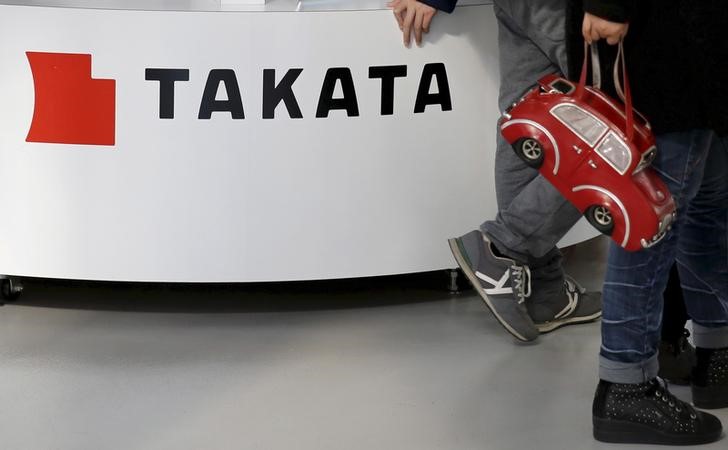TOKYO (Reuters) - Japan's Takata Corp (T:7312) is booking an additional special loss of 16.6 billion yen (107 million pounds) for the year that ended in March due to mounting recall costs for its potentially lethal air bags.
The company also said it expects to book a loss of around 3.5 billion yen for the same year to settle product liability claims related to its faulty air bag inflators, which has resulted in a recall of more than 50 million air bags worldwide.
The special losses announced on Monday show Takata's ballooning recall costs, the prospect of which has prompted the company to look for a financial backer with plans to draw up a list of candidates by August, Reuters reported last month.
The losses exceed Takata's forecast for a full-year net profit of 5.0 billion yen. The company is due to announce its official annual results on May 11.
The special losses include a $70 million fine paid to U.S. auto safety regulators, which late last year banned the company from using air bag inflators containing non-desiccated ammonium nitrate, which can become unstable and explode with excessive force.
This fault can cause air bags to inflate violently, spreading metal shrapnel into vehicle compartments. Such incidents have been blamed for 11 deaths and more than 100 injuries, mainly in the United States.
U.S. auto safety regulators said last month there were about 85 million unrecalled air bag inflators made by Takata used in U.S. vehicles which would eventually need to be recalled unless the company can prove they are safe.
The auto industry is waiting for the results of several investigations, including one commissioned by Takata itself into the root cause of the exploding air bags. That could determine how the recall costs will be covered.
So far, most of those costs have been borne by automakers including Honda Motor Co (T:7267), Toyota Motor Corp (T:7203), and Ford (N:F) whose cars are fitted with Takata air bags modules. Many automakers have said they will stop using the company's inflators in future models.
Analysts have estimated that if Takata is found to be solely responsible for the fault in the inflators, it could be stuck with a bill of more than $3.5 billion for inflators recalled to date. The company is also facing lawsuits.

The parts maker has been widely criticised for dragging its feet in identifying air bag inflators that needed to be recalled, and for providing incomplete and inaccurate data to transport authorities and automaker customers.